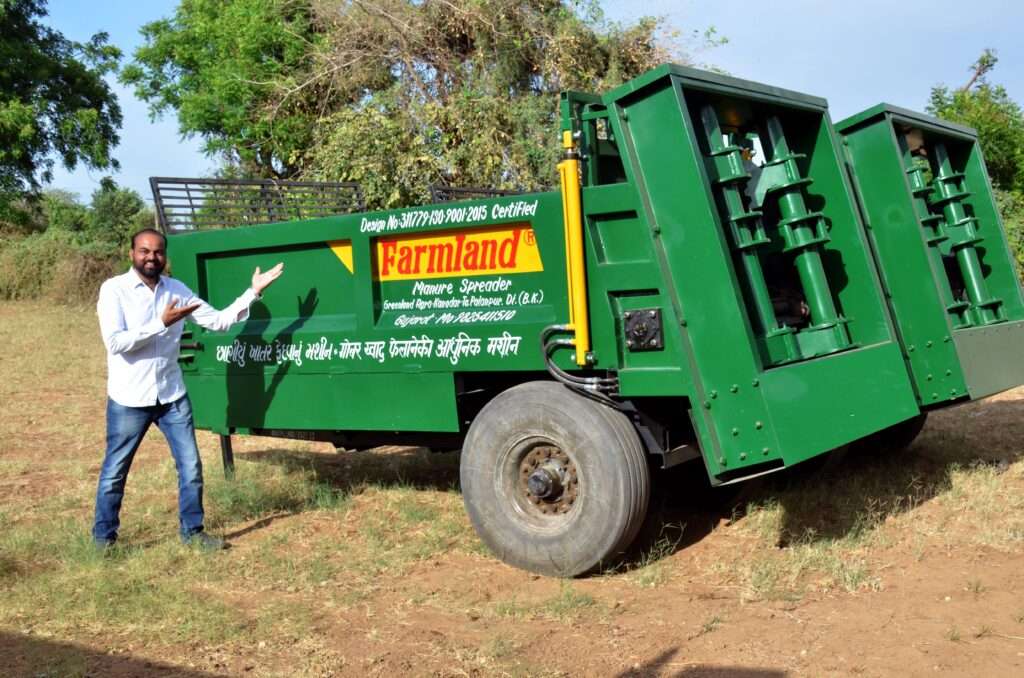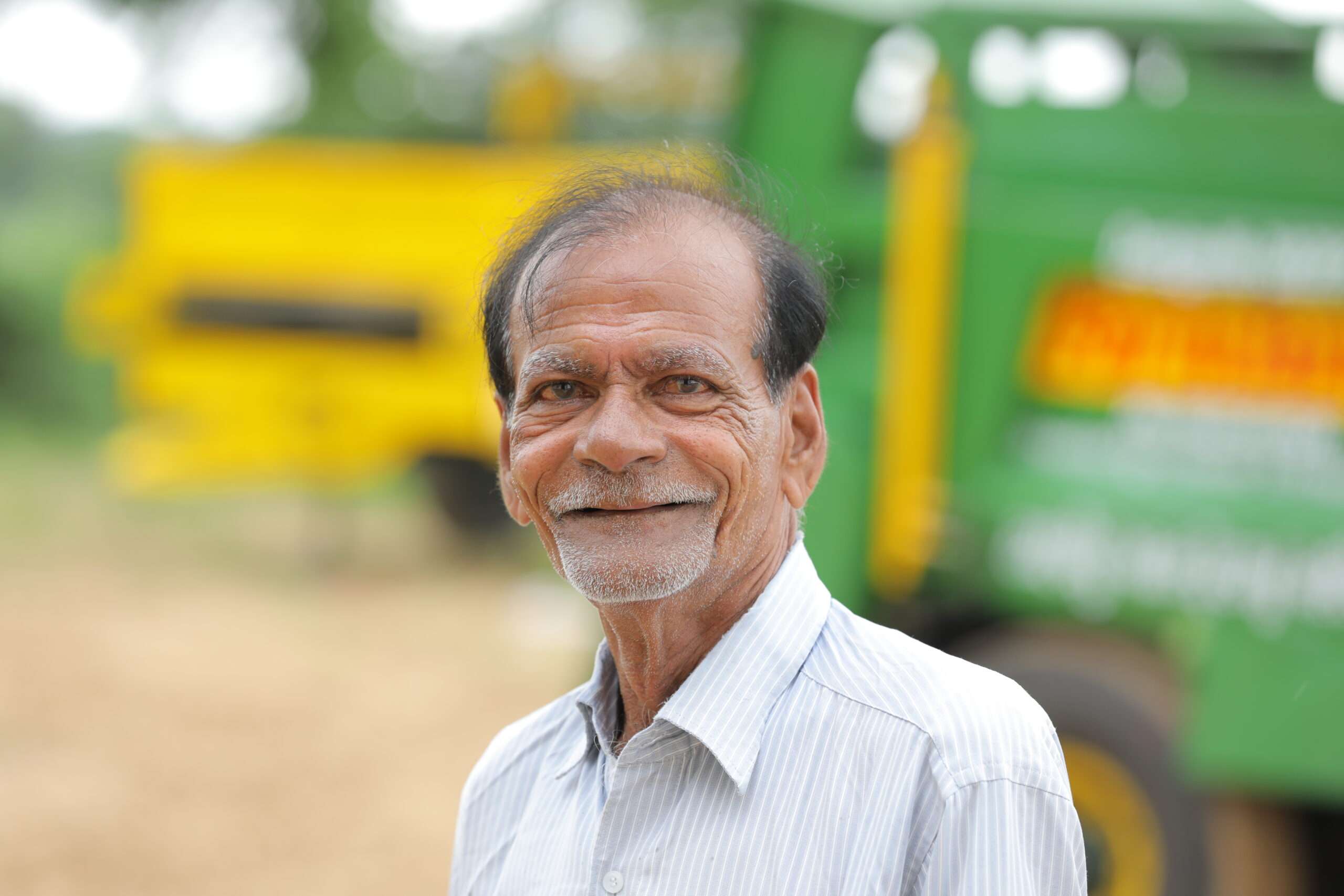
As an innovator, Ashikbhai noticed that if any farmer wants to spread farm yard manure on their farm, they always have to ask the service provider who will come with their tractor, trolley, and JCB with labor. In this process, the service provider makes piles in the farm by picking them up manually from the farmer’s dump site. Further, these piles had to be spread in the field, which is labor-intensive and time-consuming. The main problem was putting manure on the farm. He saw a foreign machine serving the task, but it was expensive for Indian farmers. So in 2017, he made a design that took three years to develop. The prototype was ready in 2018 for testing. We asked a farmer to give us feedback on the problems faced for one year. We did R&D to solve the problems, and the final model was ready by 2019, which they launched in the market. Many experiments were done on RPM, torque, weight balancing, turning weight optimization, etc., before finalizing the trolley compatible with the conventional tractor arrangement. It is 11ft in length, 6 ft in width, and 2 ft in height. 3,300 kg weight of the machine. This is the standard size. It can hold 4.5 tons of wet manure and 2.5-3 tons of dry manure. This machine is attached to a tractor and is controlled by a remote. Machines do not have many maintenance costs. Ashikbhai conducts feedback sessions with the consumers every week to keep track of the issues and setbacks of the machine, if any. The customers are delighted with the product as well as the services provided by the company. The machine was then able to spread both dry and wet manure on the field. This helps farmers in many ways, such as saving precious time, spreading manure uniformly over the field, and reducing labor expenses. The team has 24 people; they only make the Farmyard Manure Spreader machine and distribute it all over India. The cost of the machine is 6,50,000, with a gross margin of 30% and a net margin of 10%. Ashikbhai has applied for a subsidy, which is in the process; the machine has been tested and approved, so the certificate is in progress. With subsidies, their production will increase by 20%. He has successfully sold this manual spreader to many farmers and is getting queries from far and wide for his farm yard manure spreader


